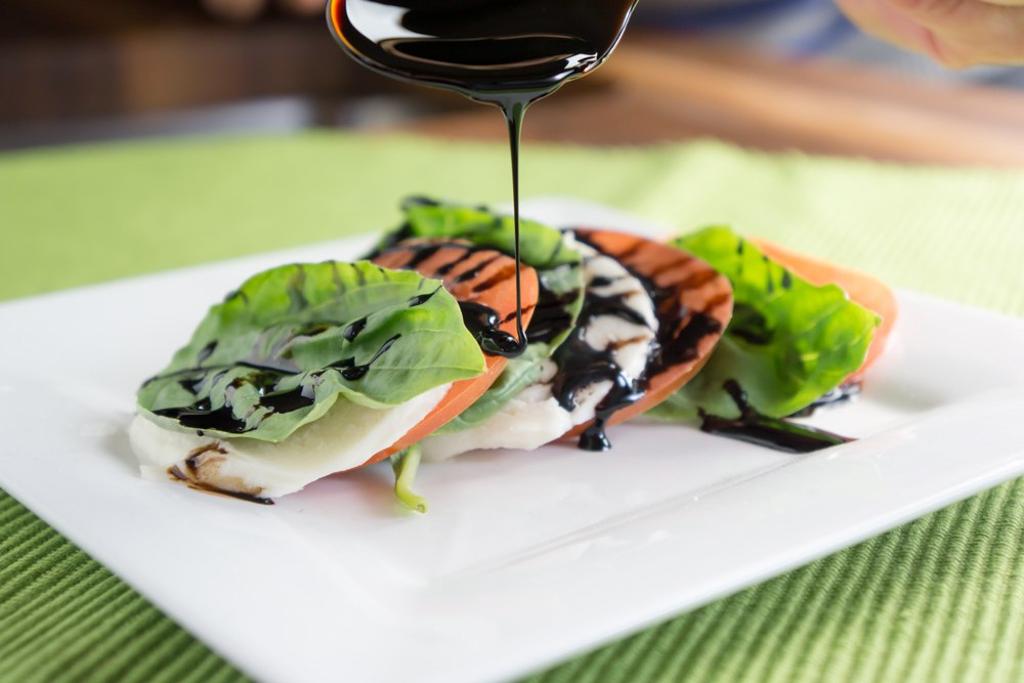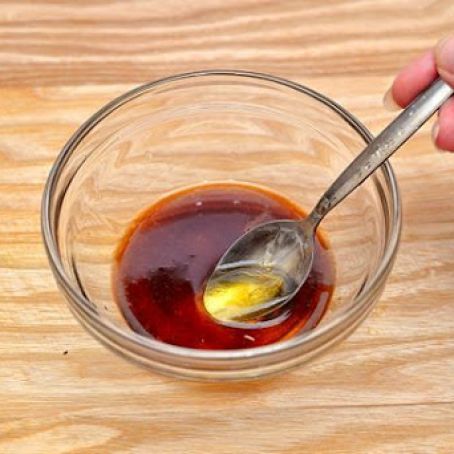Get interesting information about Can I Use Balsamic Vinegar Instead Of Balsamic Glaze, this article is specially curated for you from various reliable sources.

Can I Use Balsamic Vinegar Instead of Balsamic Glaze?
The tantalizing aroma of balsamic vinegar effortlessly elevates culinary creations, transforming simple dishes into masterpieces. Its versatility knows no bounds, gracing salads, marinades, and sauces alike. However, when embarking on the path of culinary exploration, it’s essential to master the subtle nuances between balsamic vinegar and balsamic glaze.
Balsamic vinegar, a revered staple in the culinary repertoire, boasts a rich history spanning centuries. Its origins trace back to the vineyards of Modena, Italy, where it is lovingly crafted from the finest grapes. Aged in wooden barrels, balsamic vinegar undergoes a metamorphosis, developing a complex symphony of flavors that dance upon the palate. Its dark, viscous nature adds a touch of elegance to any dish, while its tangy sweetness complements both savory and sweet creations.
Balsamic Glaze: A Culinary Symphony
Balsamic glaze, a close relative of balsamic vinegar, is a luscious reduction that captures the essence of its predecessor. Created by simmering balsamic vinegar over low heat until it thickens to a velvety consistency, balsamic glaze embodies the flavors of its origin. Its concentrated sweetness and rich, syrupy texture make it an indispensable condiment, adding a touch of culinary magic to grilled meats, roasted vegetables, and even desserts.
The Interplay of Flavors: Understanding the Difference
While balsamic vinegar and balsamic glaze share a common lineage, their distinct characteristics set them apart. Balsamic vinegar retains a vibrant acidity, a key element in balancing flavors and adding a touch of zest to dishes. Balsamic glaze, on the other hand, embraces sweetness, its luscious texture enveloping the palate with a captivating richness.
The intensity of these flavors also varies. Balsamic vinegar, with its concentrated acidity, delivers a bolder punch that stands out in dressings, marinades, and sauces. Balsamic glaze, while still flavorful, offers a more subtle sweetness that complements dishes without overpowering their natural flavors.
Culinary Applications: Embracing Versatility
Balsamic vinegar and balsamic glaze, despite their differences, harmonize beautifully in the culinary realm. Balsamic vinegar, with its robust acidity, excels in marinades, where it tenderizes meats and infuses them with its distinctive tang. Drizzled over salads, it adds a refreshing acidity that brightens and enhances the flavors of vegetables. Used as a finishing touch in sauces, it elevates them with a burst of acidity and complexity.
Balsamic glaze, with its velvety texture and concentrated sweetness, takes center stage as a condiment. Drizzled over grilled meats, it adds a touch of caramelized sweetness that complements the charred flavors. Brushed over roasted vegetables, it imparts a luscious glaze that enhances their natural sweetness. Balsamic glaze also adds a touch of elegance to desserts, drizzled over ice cream or fruit, where its richness harmonizes with the delicate flavors.
Tips and Expert Advice: Enhancing Culinary Creations
Incorporating balsamic vinegar and balsamic glaze into your culinary repertoire unlocks a world of flavor possibilities. Here are a few tips and expert advice to guide you:
Choose High-Quality Ingredients: The quality of your balsamic vinegar and balsamic glaze directly impacts the final result. Opt for balsamic vinegar from reputable producers and balsamic glaze made from authentic balsamic vinegar.
Balance Flavors: When using balsamic vinegar in marinades or sauces, consider the acidity level and balance it with other ingredients. A pinch of sugar or a touch of honey can temper the acidity, while herbs and spices can add complexity.
Experiment with Drizzling: Balsamic vinegar and balsamic glaze add a touch of artistry to dishes when drizzled. Experiment with different patterns and techniques to enhance the visual appeal of your creations.
Frequently Asked Questions: Clarifying Common Queries
Q: Can I substitute balsamic glaze for balsamic vinegar?
A: While balsamic glaze offers a concentrated sweetness, it can’t entirely replace balsamic vinegar. Its lack of acidity may alter the balance of flavors in certain dishes.
Q: How do I store balsamic glaze?
A: Store balsamic glaze in a sealed container in a cool, dark place. It can last for several months if stored properly.
Q: Can I make my own balsamic glaze?
A: Yes, you can create your own balsamic glaze by simmering balsamic vinegar over low heat until it thickens. The reduction process can take several hours, but the result is a luscious, homemade glaze.
Conclusion: Embracing the Culinary Symphony
Balsamic vinegar and balsamic glaze, while similar in origin, offer distinct flavors and culinary applications. Understanding the nuances between them empowers you to elevate your culinary creations, adding a touch of acidity or sweetness that harmonizes with the natural flavors of your dishes. Embrace the versatility of these ingredients and explore the endless possibilities they offer.
Are you interested in exploring the world of balsamic vinegar and balsamic glaze further? Share your thoughts and questions in the comments below!

Image: kitchenncooking.com
We express our gratitude for your visit to our site and for taking the time to read Can I Use Balsamic Vinegar Instead Of Balsamic Glaze. We hope you benefit from Can I Use Balsamic Vinegar Instead Of Balsamic Glaze.